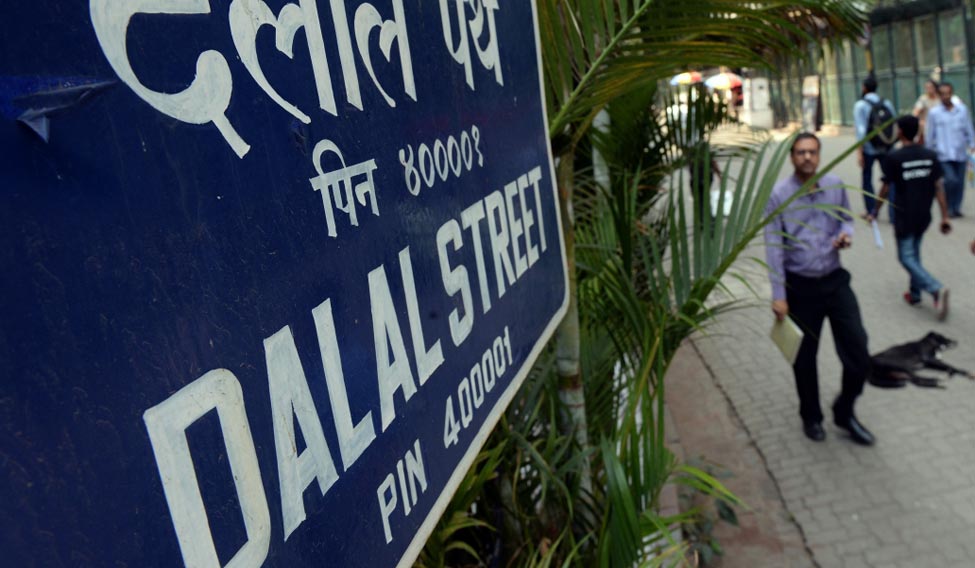The Budget is around the corner and the key concern on the minds of equity market investors right now is whether the government will tax long term capital gains or make any changes to other taxes like the Securities Transactions Tax (STT). In the last year's budget, Finance Minister Arun Jaitley left things untouched. The hope is that Jaitley wouldn't want to rock the boat now at a time domestic investors have taken to equity mutual funds in a big way and the flows have driven benchmark indices to record highs.
As of now, shares or funds sold within one year are subject to short-term capital gains tax of 15 per cent. Long-term capital gains (LTCG) – holding shares or equity mutual funds for more than one year is considered long-term – are currently not taxed in India. Investors do pay an STT on purchase or sale of listed securities.
In December 2016, speaking at an event at the National Institute of Securities Markets, Prime Minister Narendra Modi had fueled speculation on higher taxes on equities, when he had said that the contribution of tax from those who made money on the markets had been low. He had further said that "low or zero tax rate is given to certain types of financial income and we should consider methods for increasing it in a fair, efficient and transparent way."
Jaitley, however, did not make any changes last year, and investors are seeking a status quo this time too.
"Clearly, LTCG exemption has resulted into better participation into equity markets and it is not that it comes for free. There is STT, which investor pays. So, if LTCG is not tinkered with, that will be more appropriate for equity market," said Nilesh Shah, MD, Kotak Asset Management Company.
Some feel that at most there could be a soft introduction of LTCG by way of increasing the holding period from one year to three years for tax exemption. However, they too are not expecting any major policy changes in the Budget this year.
"I don't think this government is runing shy from an electoral perspective, in terms of announcing more reforms. Budget is not a place to announce new reforms any case, minor tweaking here and there in rates, I think the Budget should be a non-event," said Dipen Sheth, head of institutional research at HDFC Securities.
More than anything else, market men want the government to maintain its fiscal path to keep the deficit in check. Towards the end of December 2017, government's announcement that it would borrow an additional Rs 50,000 crore by selling bonds, sent India's benchmark 10-year bond yields up sharply, as worries of fiscal slippages rose. The government has since reduced the additional borrowing target to Rs 20,000 crore from Rs 50,000 crore, but the way the markets reacted shows investors are averse to government leaving its fiscal path, say analysts.
"From a fiscal wriggle room stand point, there is very little. Markets are very malignant. Just Rs 40,000-50,000 crore borrowing in India led to the 40-50 basis points widening of the (bond yield) curve. It essentially tells the government that you can't do it. So, by borrowing from future and spending more today, though government may want to do it, looks very difficult right now," said Mahesh Patil, co-chief investment officer at Aditya Birla Sun Life MF.
The government had targeted fiscal deficit at 3.2 per cent of GDP in 2017-18.
Shah of Kotak AMC also feels the government should not deviate from its fiscal glide path.
"The equity market generally gets re-rated when the fiscal deficit is coming down. We saw that in 2003-2008 period, we saw that again in 2014-2017 period. So, what we want is honoring the path of fiscal prudence, let the fiscal deficit be on the glide path, which was promised earlier," he said.
Overall, while market men don't feel this Budget will be populist, but the expectation is that the government would focus more on the rural India and spending on infrastructure could also remain robust.
"Rural and infrastructure are the sectors that will broadly benefit from the Budget. We don't feel this government is capable of throwing helicopter money, but the emphasis for real as well as electoral reasons is going to be on improving the stock of rural India," said Sheth of HDFC Securities.






